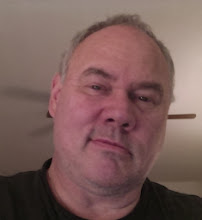[affir]med; as,
He-gka,--------my father.
na-ncae,-------your father.
a-ncae,--------his father.
a-ncae-he,-----the father.
he-na,---------my mother.
de-hu,---------your mother.
e-hu,----------his mother.
he-ntu-ka,-------my grandfather, or father-
-----------------in-law.
de-tu-ka,-------your grandfather, or
----------------father-in-law.
e-tu-ka, ---his, or her grandfather, or
-----------father-in-law.
he-gku-nyae-----my grandmother, or
-----------------mother-in-law.
de-ku-nyae, or de-ku,--your grandmother or
-------------------mother-in-law.
e-kun-nyae or e-ku, --his, or her grandmother,
--------------------or mother-in-law.
he-ntu-me, --------my aunt.
de-tu-me,---------your aunt.
e-tu-me,----------his aunt.
he-ncae-ka,-------my uncle.
de-cae-ka,--------your uncle.
e-cae-ka,---------his, or her uncle.
he-nto-ska,-------my nephew.
de-to-ska,--------your nephew.
===end p. 20===
Lance's Notes for p. 20
He-gka,--------my father.
hingka (H/I)
hinka (today)
na-ncae,-------your father.
nanche (H/I)
nanje (today)
a-ncae,--------his father.
anche (H/I)
anje (today)
a-ncae-he,-----the father.
anchehi (H/I)
anjehi (today)
he-na,---------my mother.
hina (H/i)
hina (today)
de-hu,---------your mother.
dihu (H/I) (r-flap likely heard as a d in initial position)
rihu (today)
e-hu,----------his mother.
ihu (H/I)
ihu (today)
he-ntu-ka,-------my grandfather, or father-
-----------------in-law.
hintuka (H/I)
hintuga (today)
-Interesting that the term for grandfather was also
used for father-in-law- doubtless because as a
term of respect and deference.
de-tu-ka,-------your grandfather, or
----------------father-in-law.
rituka (H/I)
rituga (today)
e-tu-ka, ---his, or her grandfather, or
-----------father-in-law.
ituka (H/I)
ituga (today)
he-gku-nyae-----my grandmother, or
-----------------mother-in-law.
hingkunye (H/I)
hinkunyi (today)
Again, as above, the same term for grandmother
is used for mother-in-law. Be careful not to
read too much into it as anything about age.
It is about respect and deference. But also
remember that our modern culture has a negative
thing about age. Not traditional Indian
culture, which regards age as something good
and to be venerated.
de-ku-nyae, or de-ku,--your grandmother or
-------------------mother-in-law.
rikunye, or riku (H/I) (again, initial r is heard as d)
rikunyi/riku (today)
e-kun-nyae or e-ku, --his, or her grandmother,
--------------------or mother-in-law.
ikunye or iku (H/I)
ikunyi/iku (today)
he-ntu-me, --------my aunt.
hintumi (H/I)
hintumi (today)
de-tu-me,---------your aunt.
ditumi (H/I) (initial r heard as d)
ritumi (today)
e-tu-me,----------his aunt.
itumi (H/I)
itumi (today)
he-ncae-ka,-------my uncle.
hincheka (H/I)
hinjega (today)
de-cae-ka,--------your uncle.
dicheka (H/I)
rijega (today)
e-cae-ka,---------his, or her uncle.
icheka (H/I)
ijega (today)
he-nto-ska,-------my nephew.
hintoska (H/I)
hintosge (today)
de-to-ska,--------your nephew.
ditoska (H/I)
ritosge (today)
And also remember that these terms
are not used the same as in modern
culture. In Ioway culture, there was
no term for "cousin." Everyone fit into
a kinship system that called people
sister, brother, aunt, uncle, mother,
father, grandmother, grandfather. Or
friend, if not related as kin.
Just as a short example-
Using my nephews and niece as an
example, my sister Amber's children
would call me "Uncle", but my sister
Brandi "Mother" or "Little Mother."
Same with Brandi's son.
See, they are the same gender, but
I am not.
Now if my brothers Bryan and Garth
had children, their children would call
me "Father" or "Little Father" as I am the
same gender as their father. But
they would call my sisters "Aunts."
Just a short example that you can't
assume anything.
One more example-
My father's mother, I called Grandma.
Her sisters I would have called Grandma
as well. But her brothers, like Uncle
Marvin Murphy, I would call Uncle.
There was no "great uncle" in the Indian
system.
My dad would have called Aunt Alma
"Mother" because she was his mother's
sister. But he would have called Uncle
Dick or Uncle Marvin, "Uncle."
Because of that, Dad would have called
Pete Fee, son of Alma, "Brother" and
Sharon Fee Denious "Sister." And so
I would call Pete "Father" or "Little Father"
in the Indian system, while in the American
system, he is "Cousin Pete" (Second Cousin).
And don't get me involved in that
"once-removed" stuff!
And of course there are relatives you
really despise or don't want to claim--
those you ignore when possible--
or when not possible to ignore them,
you call by the proper term but with added
coldness when you are stuck having
to talk to them ("Oh. Hello. 'Uncle'.")
But of course in the old days that
didn't happen much, because you
knew your relatives were the only
ones who you could count on, so
there was elaborate means of respect
and making things right when people
hurt each other's feelings. Your relatives
were forever, so you took care of each
other. If you didn't get along personally,
you just gave each other space until
the chips were down.
The word for stranger was the same
as for (potential) enemy; that's why
when you wanted to have peace or
good relations with a stranger, you
adopted them as some sort of kin,
or became a friend with them (which
also meant something deeper than
our present kind of "friend")
===end p. 20===



